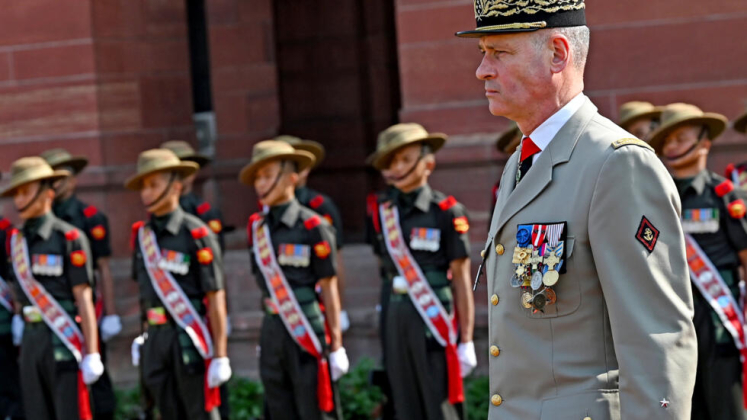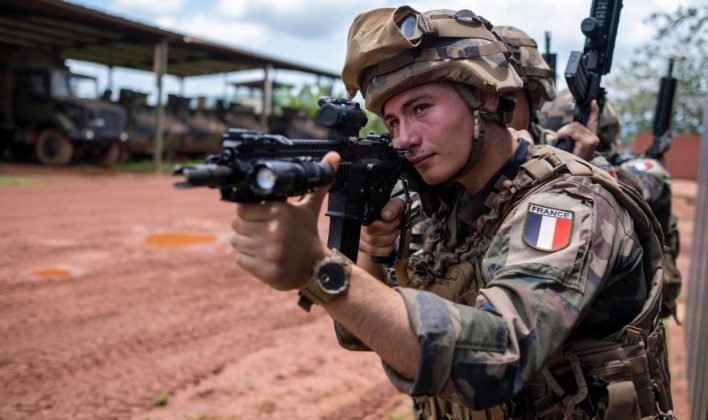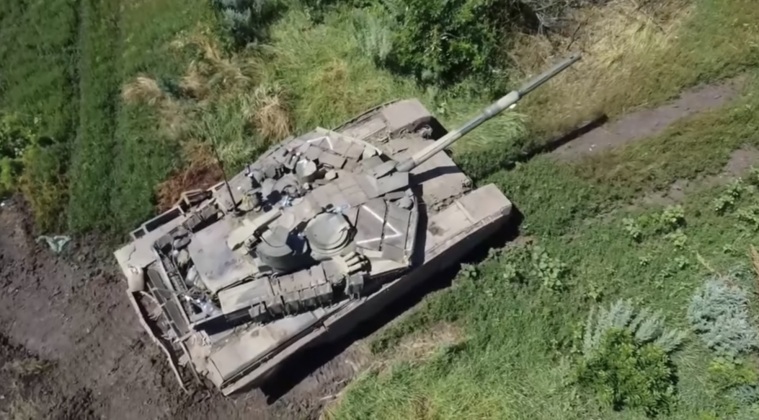News
France Preparing Ground Force Deployment in Ukraine: Army Chief Warns Paris ‘Ready For War’ Amid Looming Escalation
The French government and armed forces are preparing for deployment of a military contingent to Ukraine, according to a recent assessment by the head of Russia’s Foreign Intelligence Service Sergey Naryshkin. An initial deployment would involve 2000 French personnel, with these set to become “a legitimate priority target for attacks by the Russian Armed Forces” according to the official. He added that the French Armed Forces were concerned about the government’s plans for deployment to Ukraine, as it was expected that they would be quickly noticed by the Russian Armed Forces in the theatre. France has since mid-February led calls among the political leaders of multiple European states to consider an overt military intervention in the Russian-Ukrainian War through ground force deployments, with President Emmanuel Macron stating on February 26 that his government “will do everything necessary to prevent Russia from winning this war.” He stressed at the time that deployments of ground forces were not ruled out.

Naryshkin’s statement notably closely coincided with one by French Army Chief of Staff General Pierre Schill that day that the country’s forces were prepared for the “toughest engagements” no matter what developments unfolded. Schill stressed that France had “international responsibilities” and was linked by defence agreements to “states exposed to major threats,” adding that the country had the capacity to commit a division of around 20,000 personnel within 30 days. France’s forces were “ready,” Schill told Le Monde, stressing that “whatever the developments in the international situation, the French can be convinced: their soldiers will respond,” with his comments widely interpreted to be an allusion to the possibility of a military intervention in Ukraine. This came less than ten days after the French parliament approved a new bilateral security deal with Ukraine. Leading French newspaper Le Monde reported preceding this that ground force deployments could involve supporting Ukrainian air defences, would potentially include both “conventional units” and special forces, and would be intended to impose “strategic dilemmas” for Moscow. An example would be providing ‘political shields’ to targets, such as those associated with new deliveries of F-16 fighters, to impose political costs on Russia if they were targeted.

Regarding the difficulties Western military contingents would face in conflict in Ukraine, retired U.S. Army Lieutenant Colonel Alex Vershinin observed in a recent article for the Royal United Services Institute that intervening forces would struggle with an attritional ground war. “In attritional wars, military operations are shaped by a state’s ability to replace losses and generate new formations, not tactical and operational manoeuvres,” he stated, stressing that Western militaries had long been strongly tailored towards short engagements. Although Western forces have been very heavily involved in the conflict in Ukraine, this is thought to have been limited to provision of advisors, supporting personnel in areas such as logistics and intelligence, and for combat purposes special units such as British Royal Marines or contractor units which are not officially affiliated to Western governments.

France has been a leading provider of contractors among Western European states, which was highlighted on the evening of January 16 when a Russian missile strike was reported to have targeted the headquarters of predominantly French European foreign fighters in Ukraine. Russian sources reported that the strike caused at least 80 casualties, 60 or more of which were killed, among the Western contractors at the facility. Russian state media reported that these personnel were “highly trained specialists who work on specific weapons systems too complex for the average Ukrainian conscripts,” which “put some of the most lethal and long-range weapons in the Ukrainian arsenal out of service until more specialists are found” to replace them. While deployments of Western personnel have been widespread, ranging from special forces to mercenary contractors, the possibility of a more direct deployment of active personnel in a ground force contingent has raised concerns of serious further escalation. Russian targeting of French Army ground units in Ukraine, for example, could be responded to by an air campaign to protect them, and after that cruise missile attacks on Russian positions responsible for launching the strikes. Such a cycle of escalation poses a potentially much greater threat of an expanded Russian-NATO war than any prior development in the Russian-Ukrainian conflict.












